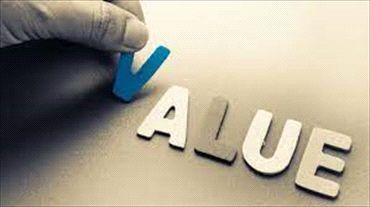Follow Us
Get in Touch
Due Diligence What Does It Mean To The Seller?
Seller’s preparation makes smooth due diligence
Steps for sellers to prepare for the eventual due diligence process.
The Buyer has made an offer on your business and in the Purchase Agreement it states that he needs ten days to complete his due diligence on your business, what should you as the seller do?
The buyer will want to see your financial statements and tax returns if they have not already been supplied.
Tip # 1 when you give the business listing to your Broker; try to give the last 3 years of your P&L’s, Balance Sheets and tax returns. This will not only save a lot of time and will show the Buyer that you are forthright with your documents.
The Buyer will want to validate the income and expenses that you have shown on your P&L’s so that they fully understand the income claimed on the business.
Tip # 2 it is a great idea to give a written explanation to your agent of any “add backs” so that the Buyer is not trying to guess how you arrived at your figures.
Unless the Buyer understands how you arrived at your income figures he or she will keep asking for more proof of income
Tip # 3 The more information (record keeping), that you supply to your Broker up front, the less information the Buyer will have to keep asking for. Try to provide as much documentation (Sales tax reports etc.), to your Broker. Remember depending upon the time of the year, the Buyer will want up to date financials.
Tip # 4 Try to keep your recording keeping up to date. Many deals have been lost due to the Seller not letting the Buyer know of any major changes to the Gross or Net income.
Due Diligence what does it mean to the Buyer?
Many Buyers ask for Due diligence on a business when making an offer but are not sure what this encompasses.
The Seller should be supplying the Buyer, with their income statements and possibly their tax returns.
Due diligence usually does not include any contingencies that need to be completed such as licensing, employee agreements or other such items.
Try to put a list together of the items that you want to review so that you are not constantly asking for additional items. The Seller will have been advised by the Broker that he will need to supply a buyer with certain items.
As a Buyer you do have an obligation to either review those documents supplied by the Seller or have your professional advisor review the documents. Unfortunately you cannot ask or rely on your Broker to complete your Due diligence for you.
Once you receive the documents requested, you will need to make a decision within the time period set up in the Purchase Agreement.
If you decide that you need more documentation to support the income that the Seller is claiming, try to do this as soon as possible since you have certain time constraints to obtain these documents. It is OK to ask the Seller to explain certain expenses or changes to the Sellers net income.
Finally, make certain that you fully understand the income and expenses of the business before going forward.
Once you release your Due Diligence, you are stating that you are satisfied that the figures given to you by the Seller appear to be correct and you are moving forward in the transaction.
Recent articles for you

First Choice Business Brokers Northwest Arkansas
Navigation Links
Want to receive new business listing alerts by email?
The World's Authority in Business Sales
© 2024 First Choice Business Brokers Northwest Arkansas | Each office is independently owned and operated. | Privacy Policy





